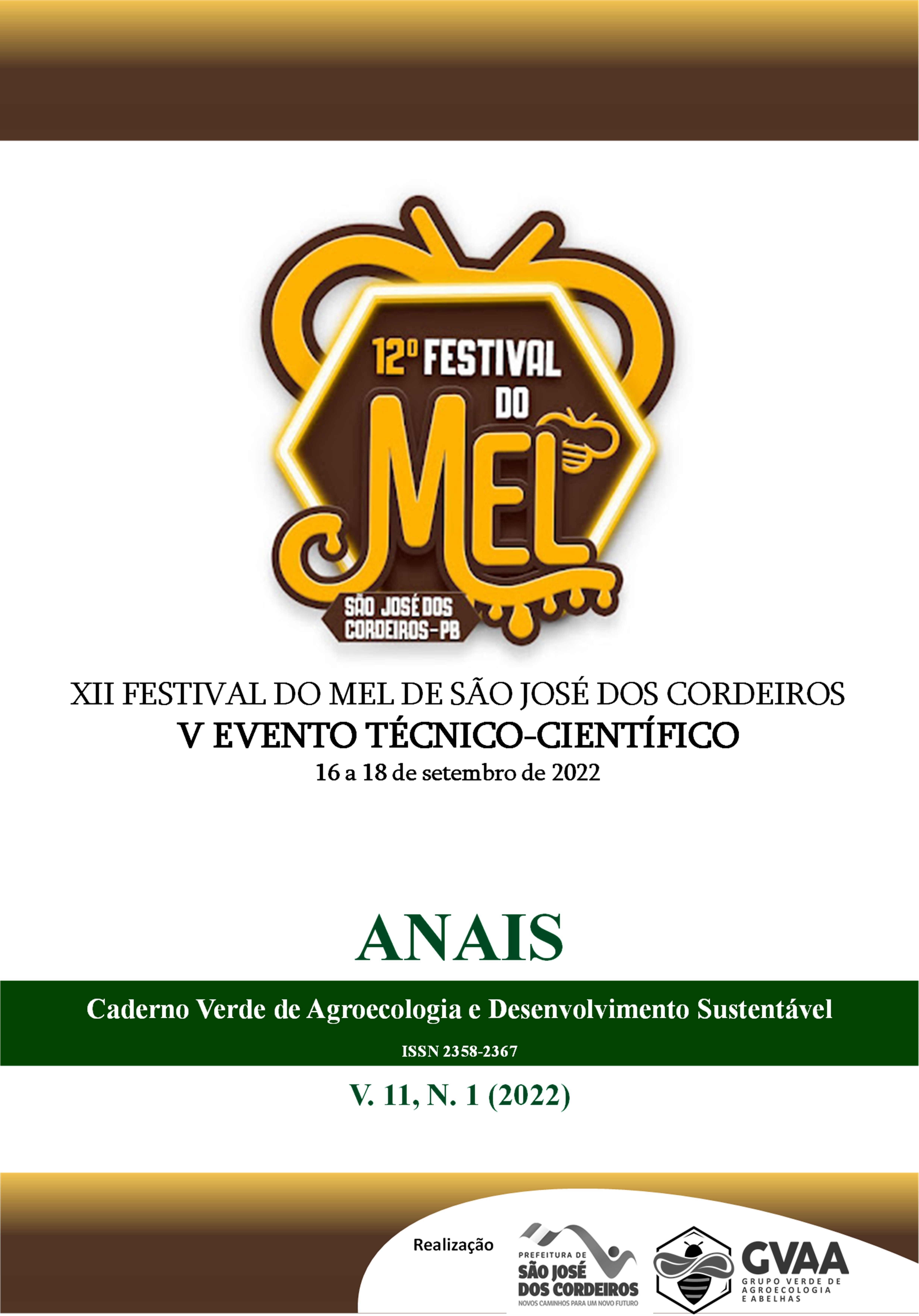Beekeeping in the Sertão paraibano: main difficulties from the perspective of small beekeepers
main difficulties from the viewpoint of small beekeepers
Keywords:
Beekeeping, Sustainability, Sertão ParaibanoAbstract
In the mid-twentieth century, in order to increase the production of honey, Africanized bees were introduced in Brazil. These quickly dispersed without any control in several regions, causing several damages to the local community. This fact required an improvement of the techniques by the local beekeeper so that there was a balance between the benefits and the problems brought about by the new species. Currently, beekeeping has been established as a prominent economic activity, mainly in the Brazilian semi-arid region. The State of Paraíba is inserted in this context, and in particular the Sertão Paraibano, because beekeeping is an ecologically correct activity and requires little investment to start the production of products from beekeeping. However, like any relatively artisanal activity, there are factors that need to be overcome by beekeepers in order to obtain better results. In this direction, the present study had as general objective to analyze the beekeeping in the backlands of Paraíba, evidencing the main difficulties from the perspective of the small beekeepers. As specific objectives, we chose to characterize the profile of beekeepers in the sertanejos and to identify the main difficulties reported for the implementation of apiaries and commercialization of bee products; to point out the main bee products produced for commercialization in the Sertão da Paraíba; to diagnose and to distinguish the difficulties of the beekeepers inherent to the productive territories and to suggest solutions to overcome the limitations encountered, besides proposing actions for the development of regional beekeeping.
Downloads
Published
How to Cite
Issue
Section
License
Termo de cessão de direitos autorias
Esta é uma revista de acesso livre, em que, utiliza o termo de cessão seguindo a lei nº 9.610/1998, que altera, atualiza e consolida a legislação sobre direitos autorais no Brasil.
O(s) autor(es) doravante designado(s) CEDENTE, por meio desta, publica a OBRA no Caderno Verde de Agroecologia e Desenvolvimento Sustentável, representada pelo Grupo Verde de Agroecologia e Abelhas (GVAA), estabelecida na Rua Vicente Alves da Silva, 101, Bairro Petrópolis, Cidade de Pombal, Paraíba, Brasil. Caixa Postal 54 CEP 58840-000 doravante designada CESSIONÁRIA, nas condições descritas a seguir:
O CEDENTE declara que é (são) autor(es) e titular(es) da propriedade dos direitos autorais da OBRA submetida.
O CEDENTE declara que a OBRA não infringe direitos autorais e/ou outros direitos de propriedade de terceiros, que a divulgação de imagens (caso as mesmas existam) foi autorizada e que assume integral responsabilidade moral e/ou patrimonial, pelo seu conteúdo, perante terceiros.
O CEDENTE mantêm os direitos autorais e concedem à revista o direito de divulgação da OBRA, com o trabalho simultaneamente licenciado sob a Licença Creative Commons do tipo atribuição CC-BY.
O CEDENTE têm autorização para distribuição não-exclusiva da versão do trabalho publicada nesta revista.
O CEDENTE têm permissão e são estimulados a publicar e distribuir seu trabalho online (ex.: em repositórios institucionais ou na sua página pessoal) a qualquer ponto antes ou durante o processo editorial, já que isso pode gerar alterações produtivas, bem como aumentar o impacto e a citação do trabalho publicado.








